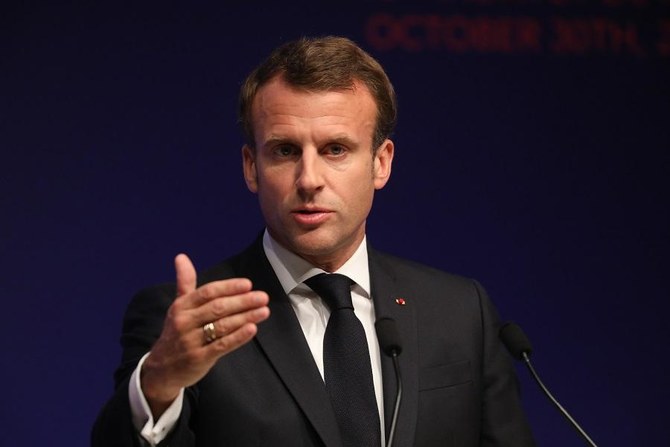SHANGHAI, China: French President Emmanuel Macron arrives in China on Monday to drum up new business deals, but under warning from his hosts to keep off thorny issues such as the pro-democracy protests in Hong Kong.
Landing in the afternoon, Macron will begin his second official trip to China in the financial hub of Shanghai where he will attend an international import fair against the backdrop of the US-China trade war.
He will have dinner with President Xi Jinping before heading to Beijing, where the two will hold more talks, with French officials saying Macron will not shy away from “taboo” topics including Hong Kong and the mass detention of Muslims in China’s northwest Xinjiang region.
Human Rights Watch called on Macron to publicly press Xi to close “political education” camps in Xinjiang and respect Hong Kongers’ rights to participate in politics.
Zhu Jing, a European affairs official at the foreign ministry, said China has prepared the “friendliest and warmest welcome” for the French leader.
But Zhu also warned that on human rights, the two countries should have “constructive” dialogue and avoid “mutually criticizing each other or politicizing the issue.”
“Hong Kong and Xinjiang are matters of China’s internal affairs. It is not relevant to put them on the diplomatic agenda,” Zhu told reporters last week.
Hong Kong has been rocked by months of political unrest, with a new night of violence on Sunday in which a knife-wielding man wounded five people, including a local pro-democracy politician who had his ear bitten off.
Zhu also warned France against playing a “disruptive” role in the Indo-Pacific region or sending warships into Beijing-claimed territorial waters.
France angered China in April when a French frigate sailed through the Taiwan Strait.
But Macron’s visit will focus on helping French companies strike new deals with the world’s second-largest economy.
France’s soft power will also be on display, with Macron inaugurating an offshoot of the Center Pompidou, the Paris modern art museum, in Shanghai’s West Bund cultural corridor.
A French presidential adviser said French companies expected to come away with around 40 contracts in agriculture, tourism, health and other sectors in which France is traditionally strong.
Macron will be Xi’s guest of honor at the second China International Import Expo in Shanghai on Tuesday and the two leaders will have a private dinner with their wives that night.
The French leader’s meeting with the Chinese president will be their sixth in under three years, signalling the importance both place on the relationship between China and Europe.
The two leaders have used previous meetings over the past two years to stress their commitment to multilateralism in the face of US President Donald Trump’s “America First” brand of nationalism.
Sino-Franco dialogue is crucial at a time when “protectionism and unilateralism keep rising,” Zhu said.
Jean-Pierre Cabestan, a political science professor at Hong Kong Baptist University, said the US tariff war is pushing China to seek closer ties with France and other European countries.
But, Cabestan cautioned, “the Europeans would be naive to believe that they can join China against Trump.”
Macron has also voiced concern over China’s massive investments in central and eastern Europe and huge trade surplus with the European Union, warning that European “naivete” toward Beijing is over.


























